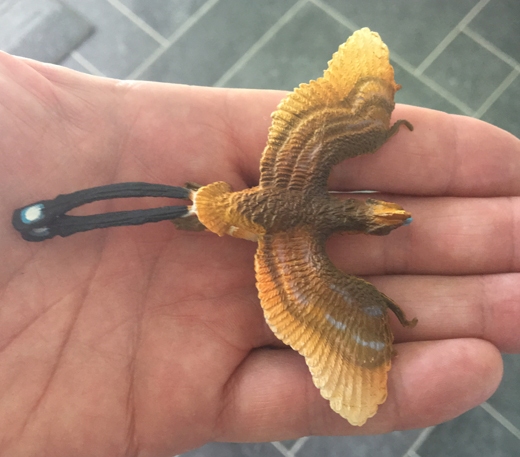China Issues New Regulations to Protect their Fossils
China’s State Council issue New Regulations to Protect the Country’s Fossils
The Chinese Government has introduced new regulations to protect the country’s fossil heritage and to deter the illegal sale of Chinese fossils and artefacts.
China has grown in importance to palaeontologists over the last fifty years or so, as more of the geology of that vast country is explored and greater numbers of significant fossils unearthed. Virtually, every major geological period is represented by exposed or outcropping strata in that huge country and sites such as the quarries near Zigong in Sichuan Province and sites at Sihetun in Liaoning Province are world famous for their spectacular dinosaur fossils. In a bid to help protect China’s fossil heritage and to help deter illegal fossil hunting activities, the State Council has issued new, tighter regulations and stricter controls on the legitimate exploration, transfer and exchange of fossil material.
Fossil Heritage
The regulations come into force at the beginning of next year and they forbid the taking of fossils that have not yet been formally identified and stipulate any fossil exhibition under state protection must seek approval from the authorities before travelling abroad. This new set of rules cover both body and trace fossils, although more recent fossil material including human remains are subject to conditions laid down by that part of the Government responsible for cultural activities.
Under these new regulations, authorities of the State Council are entitled to trace and claim fossils that were illegally transported outside China. In addition, State-owned entities are not allowed to sell, exchange, or give away palaeontology fossils to private entities or individuals, and palaeontology fossils are not allowed to be sold, exchanged, given away or pledged to foreigners or foreign-owned organisations. These new rules are designed to help protect China’s fossil heritage, the scale of illegal sales and fossil smuggling is unknown but it is suspected that there is a large black market for fossils from China.
Deter Smuggling
To read an article about the return of “black market” fossils to China: Dinosaur Eggs Returned to China.
Government staff will face strict penalties if they illegally possess or fail to halt the taking away of fossils. A spokesperson with the Legislative Affairs Office of the State Council stated that the regulation is more comprehensive than the Management Measures on the Protection of Palaeontology Fossils, China’s current regulation on fossil protection, which was enacted in 2002.
The new regulations are designed to provide more guidelines on the supervision, prohibition and penalties with regard to the over-exploitation and smuggling of fossils, an official commented.
PNSO of China have been developing a beautiful range of dinosaur and prehistoric animal models and figures. Many of these figures represent iconic animals from China’s fossil heritage such as the ancient bird Confuciusornis.
The PNSO Confuciusornis Age of Dinosaurs Model
Picture credit: Everything Dinosaur
To view the range of PNSO models available from Everything Dinosaur: PNSO Museum Quality Dinosaur Models.


